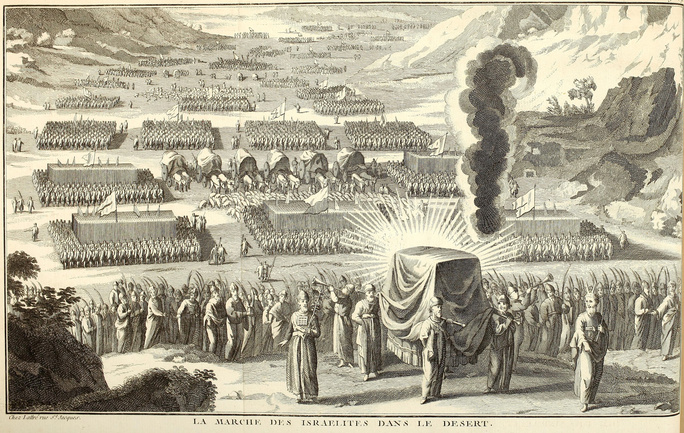Biblical Background: To Repent
The instruction ‘to repent’ has a very heavy connotation for most people. Defined as ‘regret’ or ‘being remorseful’, it sounds uncomfortable and dark. But somehow it is meant to lead to something good?
Since it is a biblical concept, allow me to call on its Hebrew meaning here. The Hebrew word we translate as ‘repentance’ is teshuva (תשובה, pronounced “teh-shoo-vah”). And teshuva is a lot more than a feeling of guilt or regret. In fact, it derives from the verb ‘to return’!
So, how does that help us understand the Biblical concept of repentance?
Download your FREE Hebrew Words PDF:
The Biblical Way to Repent
Our English Bible often mentions repentance, which most interpret as being sorry. As such, it appears to be more of a feeling rather than taking action. We punish ourselves in our thoughts and feelings, which torments our soul. What is more, often the repenting seems to never end.
But teshuva takes on a completely different focus. Instead of being simply a state of mind, it is a decision. It is deciding to turn away from where you are headed and moving back toward God.
One of my favorite theologians, Abraham Joshua Heschel, puts it this way: “A change in man’s conduct brings about a change in God’s judgement.” When we teshuva — turn away from the darkness and toward the light — God pulls us toward Himself!
“Even now,” declares the LORD, “return to me with all your heart …” (Joel 2:12)
Hebrew – and Jewish – Understanding of Repentance
It is not just adjusting the course, but completely turning back around – physically, emotionally and spiritually. Teshuva is more than just stopping a certain behavior, being sorry or apologizing one time. This is a continuous decision to return to God and to receive a new beginning.
In Jewish thought, the purpose of repentance is to go through a transformation. It is not just an apologetic confession. “To regret a misdeed is only a step in the process of teshuva”, explained Ismar Schorsch, a professor of Jewish History. This means that there are more steps to follow.
Professor Schorsch uses the example of Joseph and his brothers as an example of true teshuva in the Bible.
The Transformation of Teshuva
Joseph was betrayed, sold into slavery, and abandoned by his brothers. But after many years, God flips the script on these men. Joseph is the second most powerful man in Egypt. Meanwhile, his brothers come to Egypt for help due to hunger and draught in the land. But they do not recognize Joseph.
This veil of mystery allows Joseph to test whether his brothers have changed. Just as they betrayed him, Joseph gives his brothers another “opportunity” to betray – this time their youngest brother. Benjamin is held responsible for a crime while the older brothers are permitted to leave.
But this time, they pass the test.
Decades of grief and remorse make them act differently. The brothers refuse to leave Benjamin behind. And Judah even offers his life and freedom in place of Benjamin’s. He, who came up with the idea to sell Joseph, now displays courage, maturity and selflessness.
Joseph is finally ready to reveal the whole truth to his brothers.
To Repent and to Return
As seen in the story of Joseph and his brothers, the biblical concept of repentance is more than saying sorry. To repent means to rearrange your entire way of thinking, feeling and being in order to forsake that which is wrong. Judah and his brothers showed remorse, but more importantly, they showed transformation.
Teshuva is returning to what is right and pure. It is returning to innocence. Aside from showing regret and remorse, it is returning to the original plan of God. To live with Him, consult with Him, fellowship with Him, and obey Him.
So, essentially, to repent means to recognize our own wrongdoing and – humbly denying oneself – to turn around and face the One we have wronged. It is regretting our sin and showing remorse, yes. And it is also committing to a new path. Because this return path of correction and truth leads to true freedom.
Teshuva and Temple Sacrifice
In Old Testament days, when the Temple stood in Jerusalem, an important part of teshuva was animal sacrifice. Laying an offering on the altar was instructed by God for covering of sins. But it was never complete and final.
Through His prophets, God made it clear that He desired something more:
“For I desire steadfast love, and not sacrifice, the knowledge of God, rather than burnt offerings.” (Hosea 6:6)
“For you will not delight in sacrifice, or I would give it; you will not be pleased with a burnt offering. The sacrifices of God are a broken spirit; a broken and contrite heart, O God, you will not despise.” (Psalms 51:16-17)
Since there is no Temple today, and clearly, the offerings were not enough to please God, what are we to do?
The Truth About Repentance
There are some basic truths we need to understand about repentance, for it to make any sense. Firstly, it is always a good time to repent, and it is never too late. If the Bible teaches us anything about forgiveness, is that it is always ‘on the table’. But it is up to us to reach for it.
Secondly, God is always ready to take you back, like the father of the prodigal son. All the son needed to do was return. Teshuva. The Father was prepared to pour out all His love, regardless of the state of the son.
And there is one more element that always accompanied Jesus’ ministry. It applied to a crippled man, a Samaritan, the woman caught in adultery, a rich man and every other person that sought Jesus’ help.
They were met with forgiveness, but also an instruction: sin no more. Teshuva, turn around, return to Me!
Returning to the Father through Jesus
Returning to God requires not just courage or conviction, but primarily… faith. We get the order all wrong when we think the journey of repentance starts with fixing our mistakes before we can approach the Cross. What makes us capable of repentance is our belief that we belong to God and that’s where we need to return.
Time and time again, Jesus said to His followers: You are healed because of your faith. You are forgiven, because your faith has set you free. The first steps in teshuva, the journey of returning, are set in faith. We return to the throne of mercy because we trust that God wants us back.
The process of repentance only makes sense if there is a place we can return to. And that was made possible thanks to Jesus, our Messiah. He opened the doors for us to return to the Father. So, if teshuva means ‘returning’, then instead of dreading it, it can become the most beautiful experience for every believer.When you read the Bible, knowing some Hebrew words will always enhance your understanding.

7 Hebrew Words Every Christian Should Know: Free PDF Download
With the use of the Hebrew language God revealed Himself to mankind. This ancient tongue held the greatest spiritual truths that guided our lives through the ages. And in each generation, they are discovered anew.
We know the Bible can be hard to understand and you want to get more out of it. Which is why we want to teach you seven Hebrew words that will transform the way you read the Bible.
Articles Related to the Hebrew Word for Repent
Estimated reading time: 6 minutes

